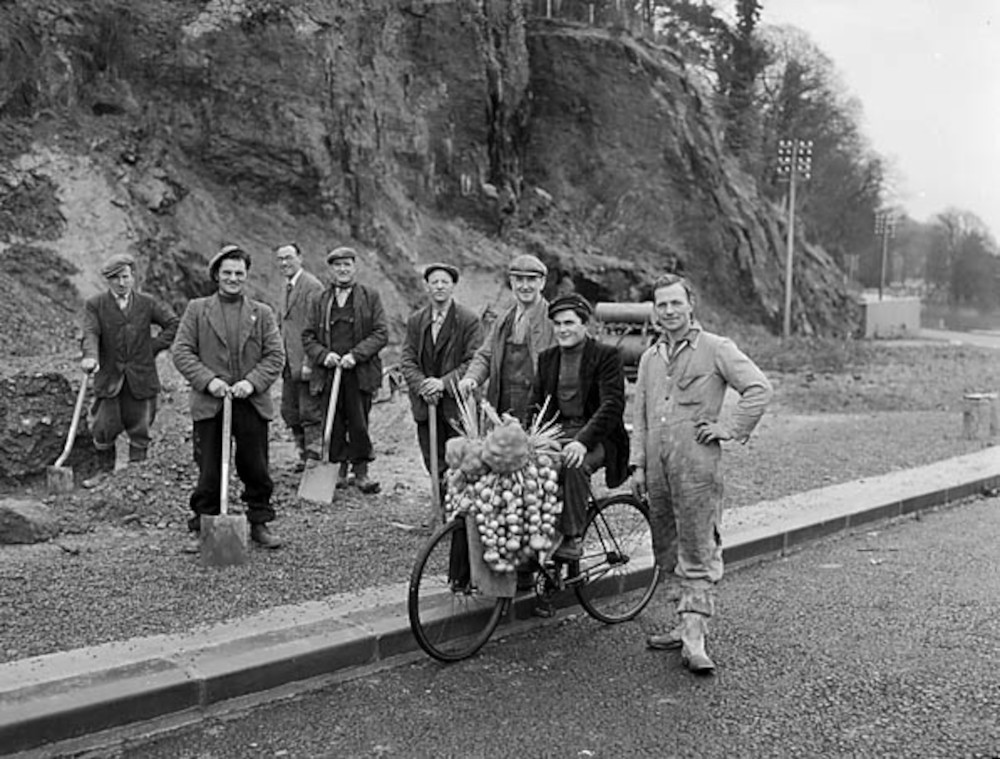In certain regions, like Scotland, Wales and Cornwall, the Johnnies were not described by the press or the locals as foreigners, but as their ‘Celtic cousins’. English newspaper articles may have insisted on their imperfect English, but stories from the Celtic parts of Great Britain confirm that it was generally understood that Bretons and Welsh people could understand each other without difficulty (despite the differences between the two languages, which plainly did not allow for mutual comprehension). In 1930, Bristol’s Western Daily Press explained, for example, that it was a well-known fact that Breton onion traders were understood by their Welsh customers. This idea can also be found in interviews with ex-Johnnies. François Gallou, a Johnny in Wales between 1936 and 1939, who was interviewed in 1986 by B Cabon and J.R. Quéau, says he heard people speaking Breton in Neath, when an old lady said she had heard the clock chime eight (“Eizh eur dro d’an Aberdoue”). During that period, it was understood that there was a closeness between the two populations. In a short story by Alun Lewis written in the 1940s, a Breton corrects a character who describes him as French: “Not at all old man, I’m more Welsh than French”. In the Celtic parts of Great Britain it was a shared familiarity with the Johnnies rather than their exoticism which was highlighted in order to laud their work.
Translation: Tilly O’Neill


